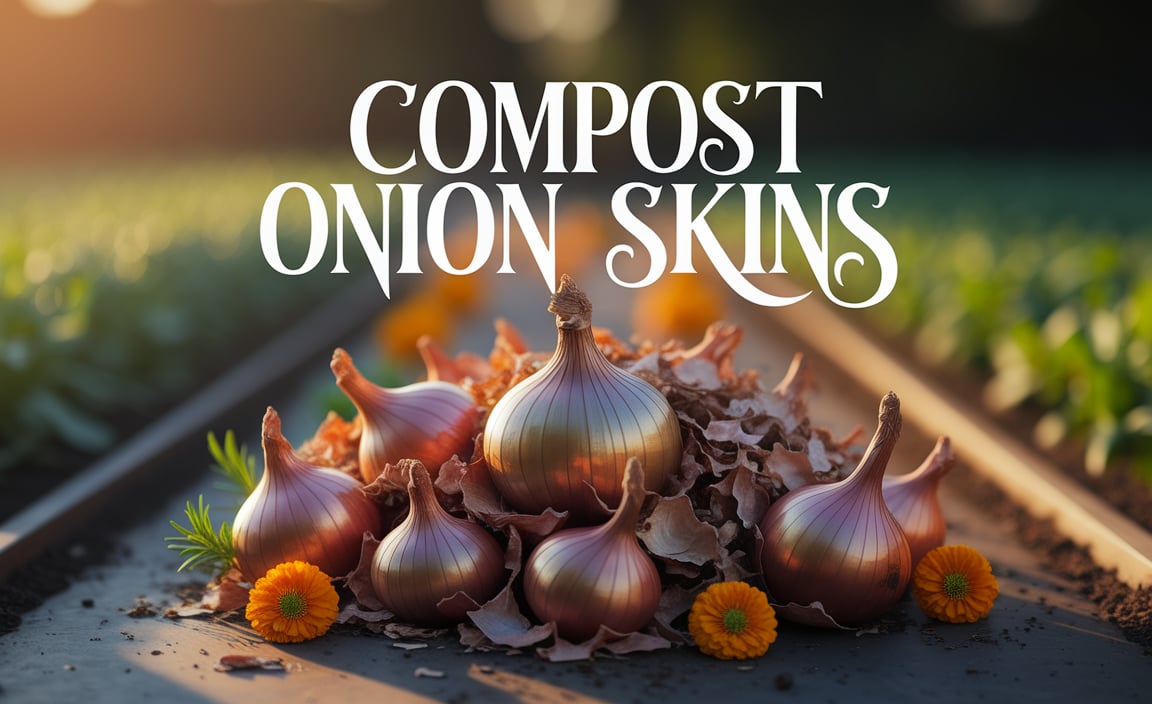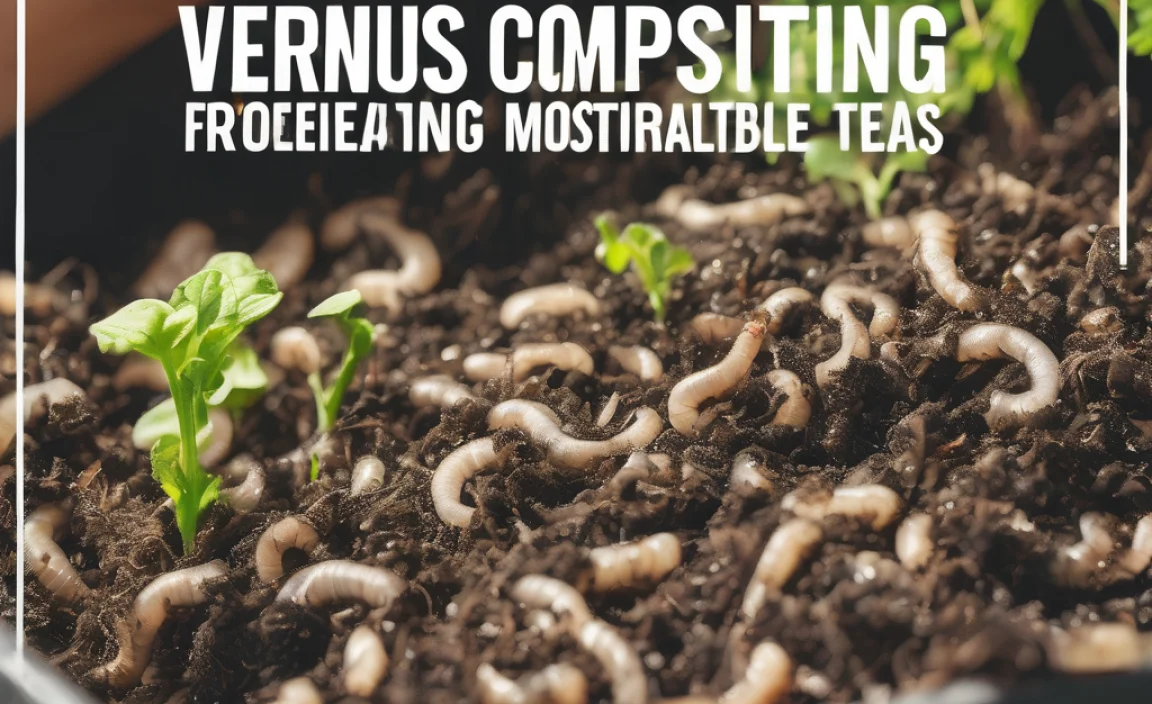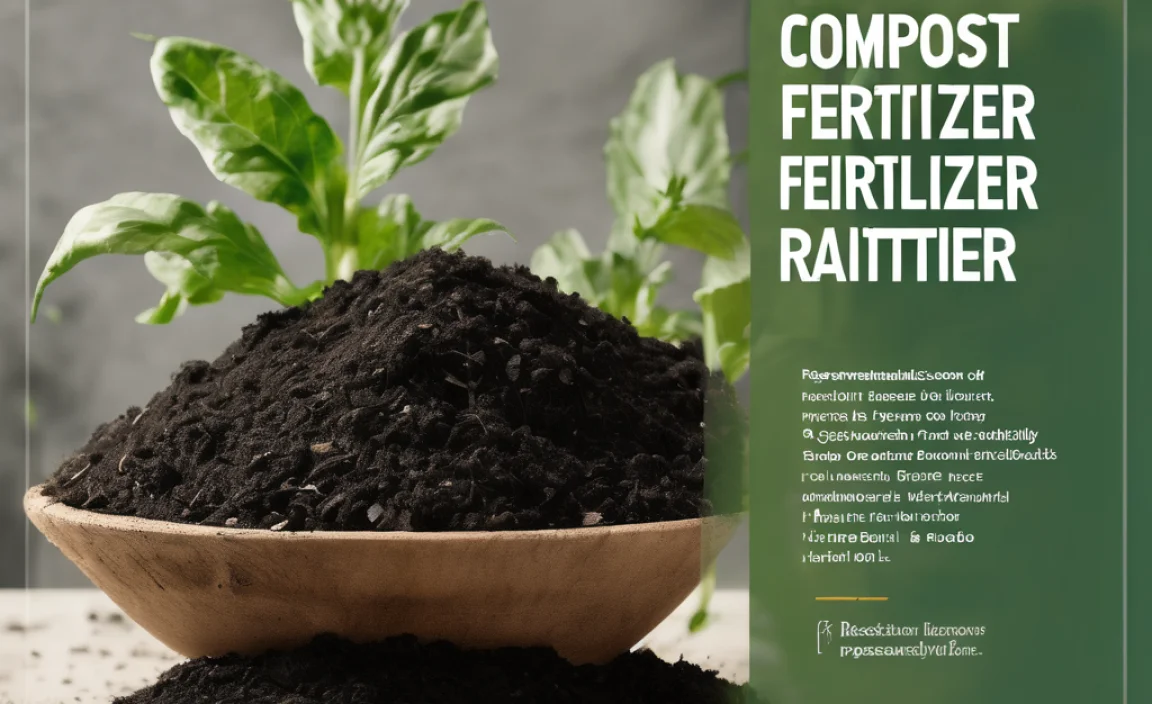Have you ever wondered how nature recycles food scraps? It happens through a process called composting. Composting turns food waste into rich soil. But how long does it take for compost to be ready? This is what we call compost time. The answer might surprise you. Let’s explore the world of composting and learn about the factors affecting compost time.
Key Takeaways
- Compost time varies from a few weeks to a year.
- Temperature and moisture affect how fast compost forms.
- Regularly turning compost speeds up the process.
- Smaller waste pieces lead to faster compost time.
- Compost enriches soil, helping plants grow strong.
Understanding Compost Time Basics
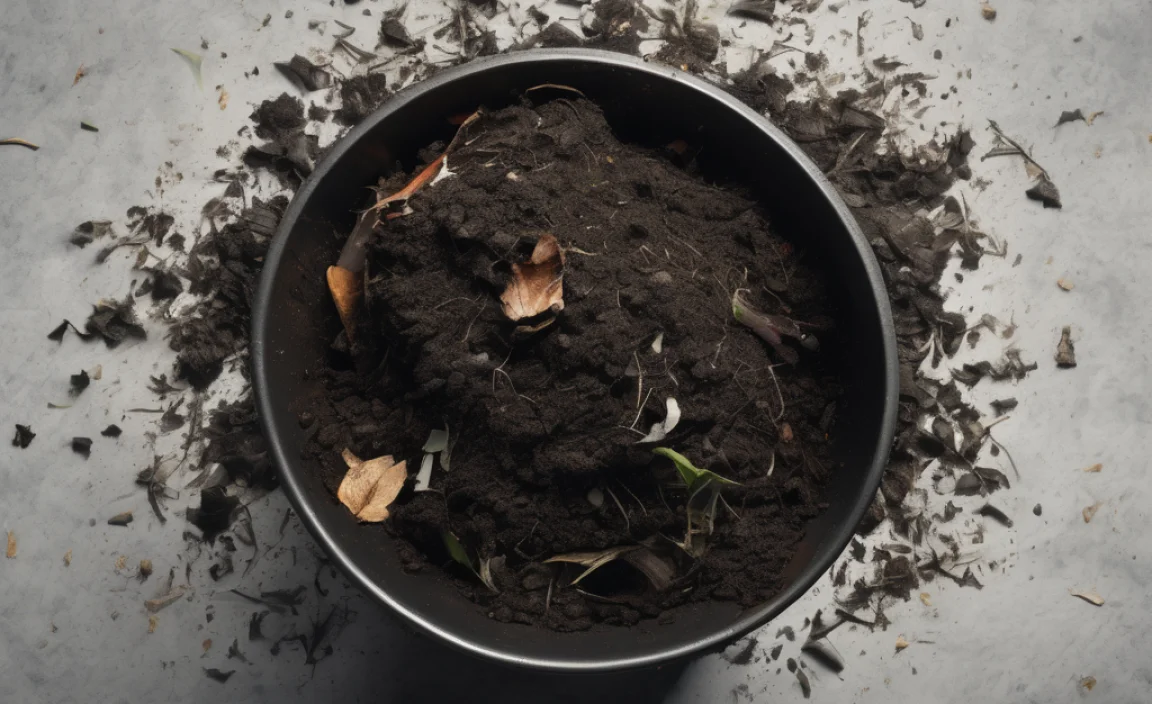
Compost time depends on several factors. It ranges from a few weeks to a year. Temperature, moisture, and the size of waste pieces play significant roles. When conditions are right, composting happens faster. A compost pile needs the right mix of green and brown materials. Green materials are food scraps, while brown materials are leaves and twigs. It’s like cooking a meal. You need the right ingredients for it to work well. Mixing and turning the pile often helps. Air gets in and speeds up composting. The more you turn the pile, the quicker it breaks down.
- Mix greens and browns for balance.
- Turn the compost pile every week.
- Keep the pile moist but not soggy.
- Chop waste into smaller pieces.
- Keep the pile warm, like in a sunny spot.
>
Knowing how compost works helps us understand nature’s recycling. Composting turns waste into something useful. It’s like magic. It reduces trash and enriches garden soil. So, the next time you see leftover food, think about composting. It’s a simple way to help the planet.
Fun Fact or Stats: Compost can reduce household waste by up to 30%!
Factors Affecting Compost Time
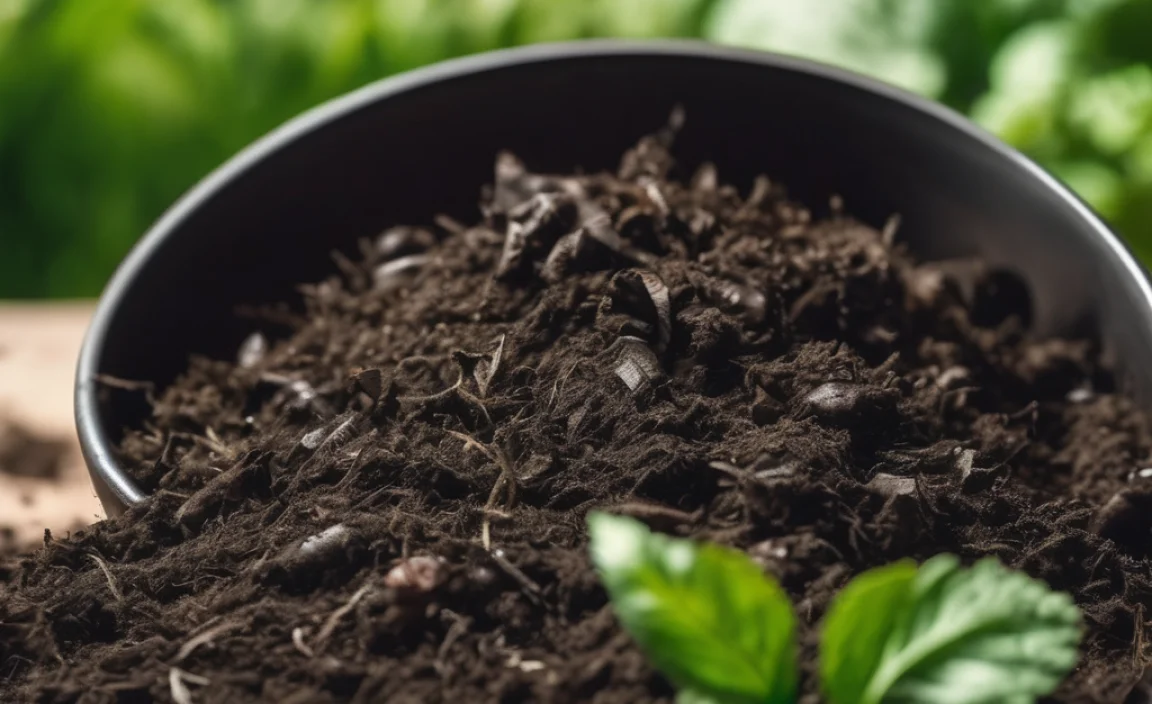
Many factors affect how long compost takes. The first factor is temperature. Composting is faster in warmer conditions. The next factor is moisture. A compost pile should be as damp as a wrung-out sponge. It’s not too wet and not too dry. Size of waste also matters. Smaller pieces break down faster. Mixing the pile lets air in. Air helps composting happen. How often you turn the pile affects speed. The last factor is the mix of materials. A good mix of greens and browns is key.
- Temperature affects speed significantly.
- Proper moisture is crucial for composting.
- Smaller pieces break down quicker.
- Airflow speeds up composting.
- A balanced mix is essential.
>
Understanding these factors helps in managing compost time. It’s about making sure everything is just right. With practice, you can become a composting expert. You’ll turn waste into treasure in no time. Think of it as a natural recycling plant right in your backyard.
Fun Fact or Stats: In hot weather, compost can be ready in as little as 4 weeks!
Why Compost Time Matters
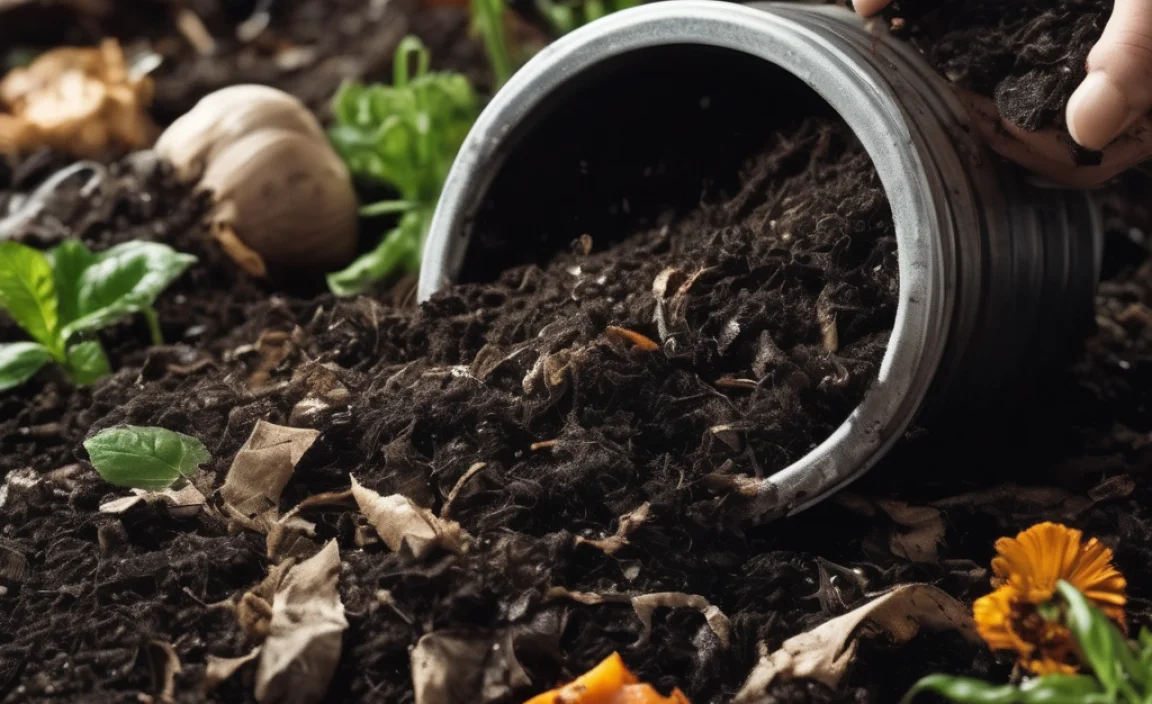
Why does compost time matter? Because it tells us how soon we can use the compost. Good compost enhances soil. It helps plants grow. Compost time affects how quickly you can improve your garden. Faster composting means less waiting. It also means less waste building up in landfills. This helps the environment. Knowing compost time helps you plan your gardening better. You can decide when to plant and what to grow next. It also saves you money. You won’t need to buy as much store-bought soil or fertilizer.
- Speeds up garden preparation.
- Reduces landfill waste.
- Improves plant growth.
- Helps plan garden timing.
- Saves money on soil and fertilizer.
>
Compost time is important for gardeners and nature lovers. It’s about creating something useful from waste. It’s exciting to see waste turn into rich soil. This soil is full of nutrients. It helps plants grow tall and strong. So, the next time you start composting, think about how it helps.
Fun Fact or Stats: Composting can reduce greenhouse gases from waste!
How to Speed Up Compost Time
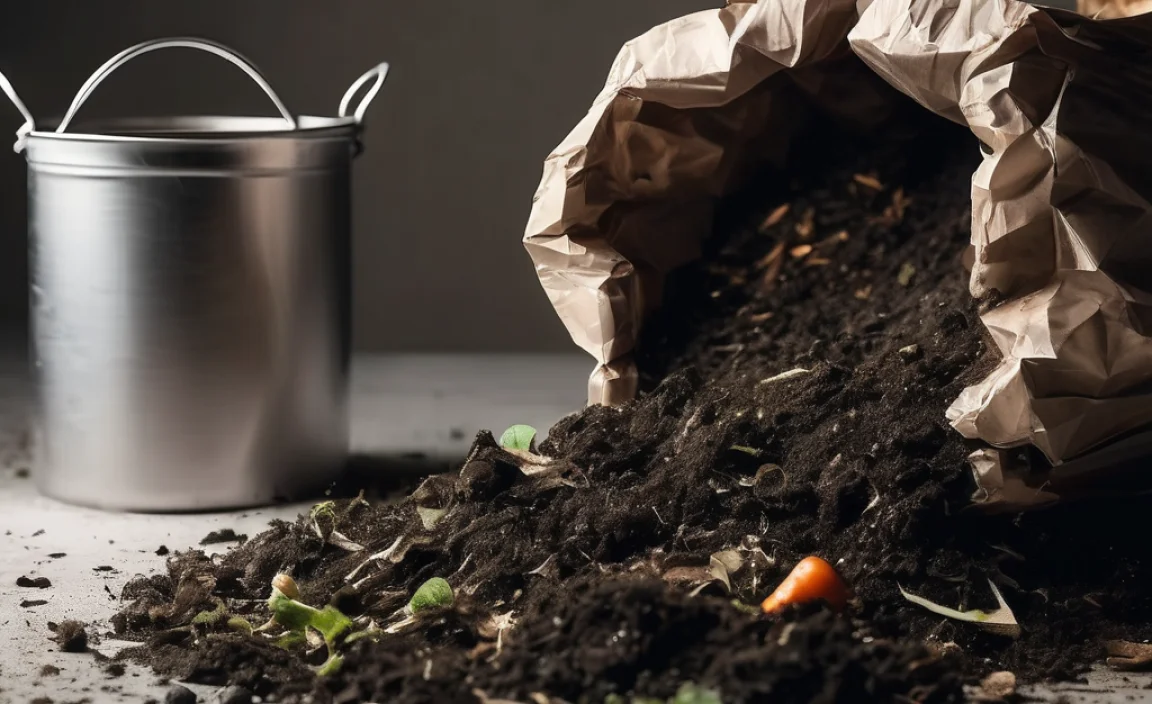
Do you want to speed up compost time? There are many ways to do it. First, chop or shred waste into small pieces. This increases the surface area for microbes. These microbes work faster and break down waste. Next, keep the compost pile warm. Place it in a sunny spot. Sunlight warms the pile and speeds up the process. Another tip is to turn the pile often. Turning adds air and helps break down waste. Moisture also helps. Keep the pile damp. If it’s too dry, add water. If it’s too wet, add dry materials. Lastly, add a variety of materials. Mixing helps balance the pile.
- Chop waste into smaller pieces.
- Warm the pile with sunlight.
- Turn the pile regularly.
- Maintain proper moisture levels.
- Mix various compost materials.
>
By following these steps, you can reduce compost time. Your compost will be ready to use sooner. You’ll have rich soil for your garden faster. This helps produce healthy plants. It’s amazing what a little effort can do. You’re not just speeding up compost time. You’re also helping the Earth.
Fun Fact or Stats: Turning a compost pile can cut compost time in half!
Common Mistakes in Composting
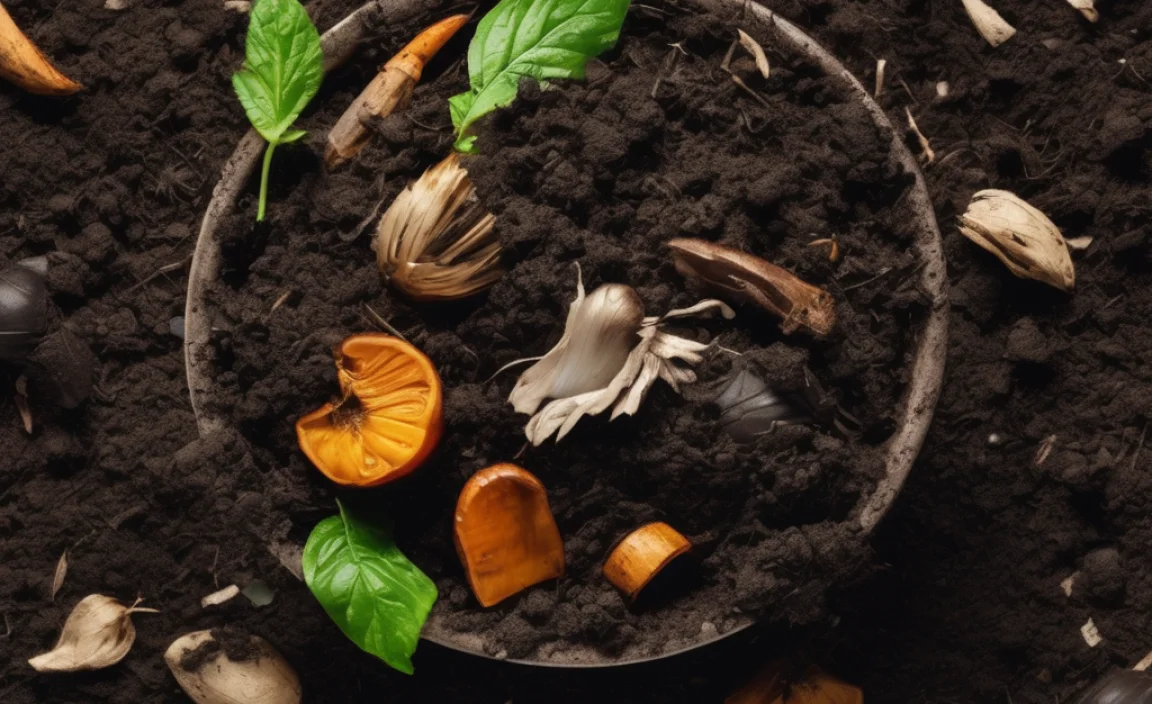
Composting can sometimes go wrong. Let’s talk about common mistakes. One mistake is not having the right mix of green and brown materials. This imbalance can slow compost time. Another mistake is not keeping the pile moist. Dry piles take longer to decompose. Overwatering is also a problem. It can make the pile soggy and smelly. Not turning the pile is another issue. It leads to slow and uneven composting. Another mistake is adding meat or dairy products. They attract pests and create bad odors. Lastly, not chopping waste slows down composting.
- Imbalance of greens and browns.
- Not enough moisture or too much.
- Failure to turn compost regularly.
- Adding meat or dairy products.
- Not chopping waste into small pieces.
>
Avoiding these mistakes makes composting easier. It speeds up compost time. You’ll have nutrient-rich soil ready in no time. Composting is a learning process. Don’t worry if it doesn’t go perfectly at first. Keep trying, and you’ll become a pro. Enjoy the journey of turning waste into wonderful soil.
Fun Fact or Stats: Properly managed compost can stay odor-free!
How Weather Affects Compost Time
Weather plays a big role in compost time. Warm weather speeds up composting. Microbes work best in warm conditions. They break down waste faster. Cold weather slows everything down. The microbes become less active. Rain can also affect compost time. It increases moisture in the pile. Too much rain can make the pile soggy. Wind helps dry the pile. It also brings fresh air. This is helpful for decomposition. Keeping the pile covered during heavy rain is a good idea. It prevents excess water.
- Warm weather speeds up decomposition.
- Cold weather slows down composting.
- Rain increases pile moisture.
- Wind brings fresh air to the pile.
- Cover piles during heavy rain.
>
Understanding weather’s impact helps manage compost time better. You can adjust your composting practices accordingly. This way, you can make sure the pile is in the best condition. It’s amazing how nature works. By observing, you can make composting more efficient. You’ll see faster results and better soil.
Fun Fact or Stats: Composting works up to 70% faster in warm weather!
| Factor | Effect on Compost Time | Action |
|---|---|---|
| Temperature | Higher speeds up | Place in sun |
| Moisture | Balanced needed | Adjust water levels |
| Size | Smaller is faster | Chop waste |
| Mix | Balance needed | Add greens and browns |
Conclusion
Composting is a wonderful way to recycle waste. It transforms scraps into valuable soil. Compost time varies, but you can control it. By managing factors like temperature and moisture, you speed up the process. Soon, you’ll have rich compost to help your garden thrive. Join the composting journey and make a difference.
FAQs
Question: How can I speed up compost time?
Answer: You can speed up compost time by chopping waste into small pieces and turning the pile regularly. Keep it warm and moist, but not too wet. A balanced mix of green and brown materials also helps. This creates the best conditions for quick composting.
Question: What materials should I avoid in composting?
Answer: Avoid adding meat, dairy, and oily foods. These materials attract pests and create odors. They can slow down compost time as well. Stick to plant-based scraps like fruits, vegetables, and leaves for best results. This ensures a healthy compost pile.
Question: Is composting possible in winter?
Answer: Yes, composting is possible in winter, but it slows down. Cold temperatures make microbes less active. You can help by insulating the pile. Add more brown materials to keep it warm. Compost time will increase, but the process continues.
Question: What is the ideal compost time for a home composter?
Answer: Ideal compost time for home composters is about 3 to 6 months. This depends on factors like temperature, moisture, and waste size. By managing these factors well, you can achieve faster composting. It’s a rewarding process that benefits your garden.
Question: How do I maintain moisture in a compost pile?
Answer: Maintain moisture by checking the pile regularly. It should feel like a damp sponge. If it’s too dry, add water gradually. If too wet, add dry leaves or newspaper. This balance helps regulate compost time and ensures effective decomposition.
.lwrp.link-whisper-related-posts{
margin-top: 40px;
margin-bottom: 30px;
}
.lwrp .lwrp-title{
}.lwrp .lwrp-description{
}
.lwrp .lwrp-list-container{
}
.lwrp .lwrp-list-multi-container{
display: flex;
}
.lwrp .lwrp-list-double{
width: 48%;
}
.lwrp .lwrp-list-triple{
width: 32%;
}
.lwrp .lwrp-list-row-container{
display: flex;
justify-content: space-between;
}
.lwrp .lwrp-list-row-container .lwrp-list-item{
width: calc(25% – 20px);
}
.lwrp .lwrp-list-item:not(.lwrp-no-posts-message-item){
max-width: 150px;
}
.lwrp .lwrp-list-item img{
max-width: 100%;
height: auto;
object-fit: cover;
aspect-ratio: 1 / 1;
}
.lwrp .lwrp-list-item.lwrp-empty-list-item{
background: initial !important;
}
.lwrp .lwrp-list-item .lwrp-list-link .lwrp-list-link-title-text,
.lwrp .lwrp-list-item .lwrp-list-no-posts-message{
}@media screen and (max-width: 480px) {
.lwrp.link-whisper-related-posts{
}
.lwrp .lwrp-title{
}.lwrp .lwrp-description{
}
.lwrp .lwrp-list-multi-container{
flex-direction: column;
}
.lwrp .lwrp-list-multi-container ul.lwrp-list{
margin-top: 0px;
margin-bottom: 0px;
padding-top: 0px;
padding-bottom: 0px;
}
.lwrp .lwrp-list-double,
.lwrp .lwrp-list-triple{
width: 100%;
}
.lwrp .lwrp-list-row-container{
justify-content: initial;
flex-direction: column;
}
.lwrp .lwrp-list-row-container .lwrp-list-item{
width: 100%;
}
.lwrp .lwrp-list-item:not(.lwrp-no-posts-message-item){
max-width: initial;
}
.lwrp .lwrp-list-item .lwrp-list-link .lwrp-list-link-title-text,
.lwrp .lwrp-list-item .lwrp-list-no-posts-message{
};
}

